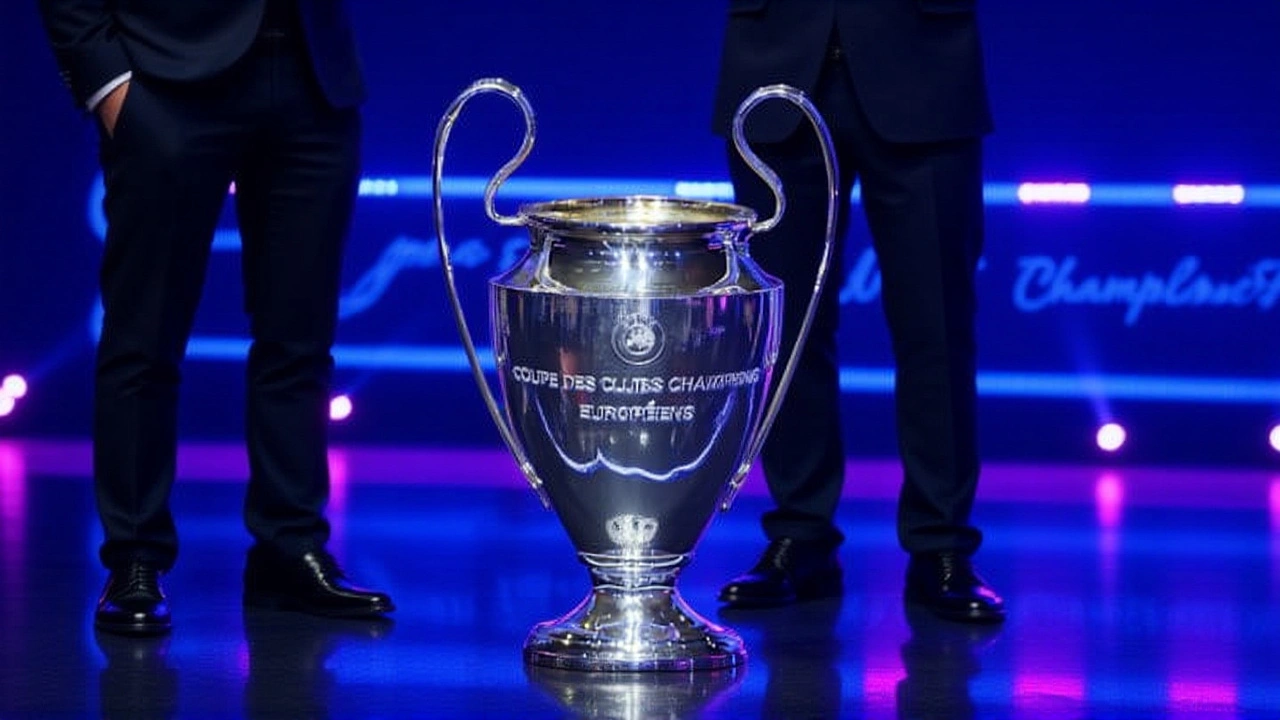The UEFA has officially dropped the full fixture list for the 2025/26 UEFA Champions LeaguePuskás Aréna — and it’s unlike anything football fans have seen before. For the first time ever, the competition’s group stage is gone. In its place: a single 36-team league table, where every club plays eight matches — four at home, four away — against randomly drawn opponents from four seeding pots. The opening whistle blows on Tuesday, September 16, 2025, when Athletic Club hosts Arsenal at San Mamés in Bilbao. By the final matchday on January 28, 2026, all 18 fixtures will kick off simultaneously, turning Matchday 8 into a continent-wide football frenzy. The final? It lands at Puskás Aréna in Budapest on May 30, 2026.
A New Era for European Football
The old group stage — four groups of eight, 96 matches total — is dead. The new format? 144 games. That’s a 50% increase in league-phase action, and it’s designed to give more teams more meaningful matches. No more dead rubbers in December. No more guaranteed group winners coasting to the next round. Every result matters. Every point counts. And with 36 teams from 53 national associations, even the smallest clubs — like Bodø/Glimt from Norway or Kairat Almaty from Kazakhstan — have a real shot at toppling giants.
Here’s the twist: you don’t just play your usual rivals. You face teams you’ve never seen in European competition. Imagine Newcastle United traveling to Aspmyra Stadion in Bodø to face Bodø/Glimt — a club that only entered the Champions League for the first time last season. Or Liverpool taking on Union Saint-Gilloise in Brussels, a team that stunned Europe by reaching the Europa League semifinals in 2023. This isn’t just a format change. It’s a cultural reset.
English Clubs in the Spotlight
Six Premier League teams are in the mix: Liverpool, Arsenal, Manchester City, Chelsea, Tottenham Hotspur, and Newcastle United. And they’re already facing brutal early tests. Arsenal opens at home against Athletic Club — a team known for their physical, high-intensity play. Chelsea starts with a trip to Benfica in Lisbon, then hosts Barcelona on Matchday 5. Meanwhile, Manchester City gets a nightmare fixture: Real Madrid at the Santiago Bernabéu on Matchday 6 — a game that could define their campaign.
And let’s not forget the home advantage. Newcastle United will host Barcelona at St. James’ Park on Matchday 1. The stadium will be deafening. The pressure? Immense. This isn’t just about points — it’s about proving they belong among Europe’s elite.
The Matchday 8 Showdown
Here’s the real genius of the new format: Matchday 8. All 18 games kick off at the same time — 21:00 CET — on Thursday, January 28, 2026. No more watching the clock, waiting for results to trickle in. Everything happens at once. It’s like the final day of a Premier League season, but on a continental scale. A single result can send a team into the top eight, knock out a giant, or send a surprise contender tumbling. Imagine Arsenal needing a win against Kairat Almaty while Liverpool faces Marseille — and both are fighting for seeding. The tension? Unbearable. The drama? Unprecedented.
Fixtures That Could Define the Season
- Matchday 1: Real Madrid vs. Manchester City — delayed until Matchday 6, but it’s the heavyweight clash everyone’s waiting for.
- Matchday 4: Paris Saint-Germain vs. Tottenham Hotspur — a high-stakes tactical battle in Paris.
- Matchday 5: Arsenal vs. Bayern München — two attacking juggernauts, one night in London.
- Matchday 6: Bayern München vs. Sporting CP — a potential title decider in Munich.
- Matchday 8: Benfica vs. Real Madrid — Lisbon’s roar against Madrid’s pedigree.
What This Means for European Football
This isn’t just about more games. It’s about money. More matches mean more TV rights, more sponsorships, more gate receipts. UEFA estimates the new format will generate over €2.3 billion in revenue — a 30% jump from the old system. Smaller clubs benefit too. Each team is guaranteed at least €15 million just for participating, with performance bonuses adding millions more. For Bodø/Glimt, a single win could mean a windfall that transforms their entire budget.
But it’s not all rosy. Critics say the format dilutes the prestige of the Champions League. Some fans miss the familiar group-stage rivalries. Others worry about fixture congestion — especially for clubs competing in multiple competitions. The UEFA says it’s solved this by staggering matchdays and reducing the number of midweek games. But with the knockout phase starting just weeks after Matchday 8, the calendar is still packed.
What’s Next?
The knockout phase draw — for the play-offs — happens on January 30, 2026. The Round of 16 draw follows on February 27, 2026. The semifinals are set for late April, with the final in Budapest on May 30. The top eight teams automatically qualify for the Round of 16. Teams finishing 9th to 24th enter a two-legged play-off to fight for the remaining eight spots. That means a team finishing 9th could still be playing in May. And a team finishing 25th? Done. No second chances. No Europa League lifeline. It’s win or go home — no middle ground.
The league phase may be new, but the stakes? They’ve never been higher.
Frequently Asked Questions
How does the new 36-team format change the path to the final?
Under the old system, teams played six group matches and advanced if they finished top two. Now, each team plays eight matches against random opponents. The top eight qualify directly for the Round of 16. Teams finishing 9th to 24th enter a two-legged play-off — meaning a team can finish 9th and still reach the final, while a 25th-place finish means elimination. There’s no Europa League safety net — it’s win or go home.
Why are all Matchday 8 games played at the same time?
Simultaneous kick-offs prevent teams from knowing their fate before they play — eliminating the possibility of match-fixing or tactical manipulation. It also creates a global viewing event, turning the final matchday into a spectacle akin to the Premier League’s final day. Fans across time zones can watch every result unfold live, heightening drama and engagement.
Which English clubs face the toughest early fixtures?
Manchester City draws Real Madrid at the Bernabéu on Matchday 6 — a potential title-decider. Chelsea opens away at Benfica and hosts Barcelona on Matchday 5. Arsenal starts with Athletic Club in Bilbao — a physically demanding away trip. All three face early tests against elite opposition.
How does this affect smaller clubs like Bodø/Glimt or Kairat Almaty?
For the first time, clubs from Norway and Kazakhstan have a realistic shot at deep runs. Each team plays eight matches — not just six — meaning more exposure, more revenue, and more chances to upset giants. Bodø/Glimt could earn over €30 million if they win three home games and qualify for the play-offs. That’s more than their annual budget. The new format turns underdogs into contenders.
Will this format continue beyond 2025/26?
UEFA has signed a 10-year deal with the new format, meaning it’s here to stay. The financial incentives — over €2.3 billion in projected revenue — make reversal unlikely. While some purists miss the old group stage, the increased competitiveness and revenue sharing have won over most national associations. Expect the format to be refined, but not scrapped.
When will the knockout phase draw happen?
The play-off draw occurs on January 30, 2026, just two days after Matchday 8. The Round of 16, quarter-final, and semi-final draw follows on February 27, 2026. Unlike previous years, the final is already fixed at Puskás Aréna in Budapest — no draw needed for the venue.

